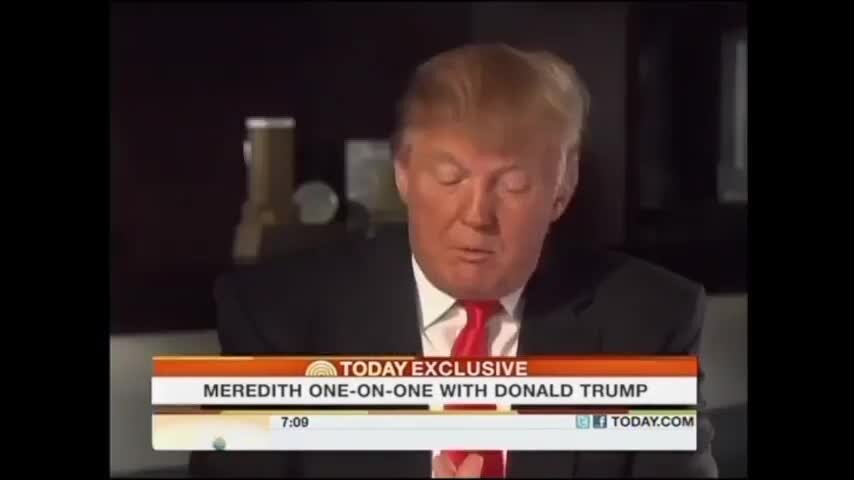
Foreign aid, a pillar of American foreign policy for generations, has been gutted since President Trump began his second term in office. The United States Agency for International Development and other government agencies that provide food, medical care and economic development assistance to the world’s poorest nations, have been largely defunded or eliminated in recent months.
In justifying the administration’s destruction of the agency, Mr. Trump said U.S.A.I.D. had been run by “radical lunatics,” and he has made numerous false claims about the agency’s work in the developing world. It included preventing and treating H.I.V. and malaria; providing emergency food assistance; and advancing the country’s national security interests by establishing new markets for American goods.
Mr. Trump has never been a big fan of foreign aid. But in his first term, he often reveled in the role of dispenser-in-chief of American largess.
Not so anymore.
To understand Mr. Trump’s evolution from foreign aid skeptic to enthusiastic supporter to, lately, its most determined and powerful foe, The New York Times reviewed nearly 1,000 speeches and interviews he has given over the past 15 years.
2011
As a presidential candidate in his first bid for office, Mr. Trump often described foreign assistance as wasteful and said the money would be better spent at home. “Foreign affairs is we take care of ourselves,” he said during an appearance on NBC’s “Today” show.

2020
But as president, Mr. Trump often spoke approvingly of American efforts to alleviate human suffering. At a news conference in 2020, he marveled at the work of PEPFAR, the U.S. President’s Emergency Plan for AIDS Relief. Started in 2003 by President George W. Bush, the initiative has allocated $120 billion and saved an estimated 24 million lives. “From what I hear, it’s very well spent,” he said, nodding to Dr. Deborah Birx, who was the government’s global AIDS coordinator for years.

And speaking at a coronavirus briefing in April 2020, Mr. Trump answered critics who questioned the value of American humanitarian assistance to the world’s most vulnerable, including those with H.I.V. in Africa. “We have to keep doing that,” he said. “That’s humanity you’re talking” about.

2019
During a White House event in February 2019, President Trump celebrated a government initiative, led by his daughter Ivanka, that focused on women’s economic empowerment in the developing world.

2017
In his first address to the United Nations General Assembly in 2017, President Trump lauded U.S. leadership as a provider of humanitarian assistance and economic support in the developing world.

But two years later, Mr. Trump’s U.N. General Assembly speech took a more skeptical tone, airing what would become a familiar complaint: The United States is too generous with foreign aid and that generosity is rarely reciprocated. “This is why we are taking a hard look at foreign assistance,” he told world leaders.
Although the Trump administration sought sweeping reductions to foreign aid during his first term, the cutbacks were repeatedly rejected by Congress with bipartisan support.

2024
By the time of Mr. Trump’s most recent presidential campaign, his lament about the excesses of U.S. foreign aid had become a mainstay of his stump speech. “We give so much money to people who have no respect for us at all,” he said at an event in September 2024. “Tell them their money is cut off. They’re defunded.”

In the final weeks of his campaign last year, Mr. Trump traveled to Asheville, N.C., where he criticized relief efforts after the devastation of Hurricane Helene. He blamed the nation’s generosity to foreign nations and what he described as a lack of reciprocity. “We’ve been helping countries for 50 years,” he said, adding “and when we need help from them, they’re not there.”

2025
On Jan. 20, the day of his inauguration, Mr. Trump signed an executive order suspending all foreign aid for 90 days while the administration evaluated whether it served America’s interests. “The United States foreign aid industry and bureaucracy are not aligned with American interests and in many cases antithetical to American values,” the executive order said. “They serve to destabilize world peace by promoting ideas in foreign countries that are directly inverse to harmonious and stable relations internal to and among countries.”
Speaking to reporters after stepping off Air Force One on Feb. 2, Mr. Trump justified the defunding of U.S.A.I.D. by claiming it was run by “radical lunatics.”

The following day, he praised the work of Elon Musk and his efforts to dismantle U.S.A.I.D., wrongly claiming Mr. Musk had discovered that the agency had spent $100 million on condoms for Hamas. “They’re finding tremendous waste,” he said of the Department of Government Efficiency. “Probably fraud and abuse could be added to that.”
Mr. Trump’s assertion about the condoms has been debunked.

To a joint session of Congress in early March, Mr. Trump made several untrue or exaggerated claims about what he described as wasteful foreign aid spending. “Eight million dollars to promote L.G.B.T.Q.I.+ in the African nation of Lesotho, which no one has ever heard of,” he said, prompting widespread laughter from the chamber.

Methodology
The New York Times analyzed transcripts of nearly 1,000 of Mr. Trump’s speeches since he entered politics, relying on a database maintained by Roll Call. We instructed an artificial-intelligence model to identify passages from those speeches related to foreign aid. We then watched video clips to verify the transcripts and the context of Mr. Trump’s words.
Videos by NBC’s Today show, The White House, Global News, FOX 4 Dallas and Roll Call.










-3.png)



